Karl von Pflanzer-Baltin
He was born in the city of Pécs in 1855, where his father, who was a chief military justice officer, was commanded. He inherited from his maternal uncle the title of Austrian baron when he died in 1898. By this time Karl Pflanzer was already serving as a colonel in the army of the Monarchy. He completed the usual elementary and secondary military schools in Hungary and Styria, and then went to the military academy in Vienna. In 1875 he began his military career as a dragon lieutenant. Until 1891 he was in the position of troop officer in various units and attained the rank of major. At this time he became a lecturer at the Military Academy in Vienna. His teaching activities were valued and honored with a military cross of merit. From 1897, as a colonel, he was appointed Chief of Staff of the XI. Corps. In 1903 he was promoted to Major General. From 1907 he was commander of the 4th Infantry Division. In this capacity he organized tactics training for the officers of the division, for which he was again awarded, at that time by the Knight’s Cross of the Leopold Order. From 1911, he was appointed superintendent of the officer schools. In 1912 he was promoted to cavalry general. In June 1914, he applied for his retirement. Fate intervened, and instead of years of peaceful retirement, he was given tough, responsible warfare duties.
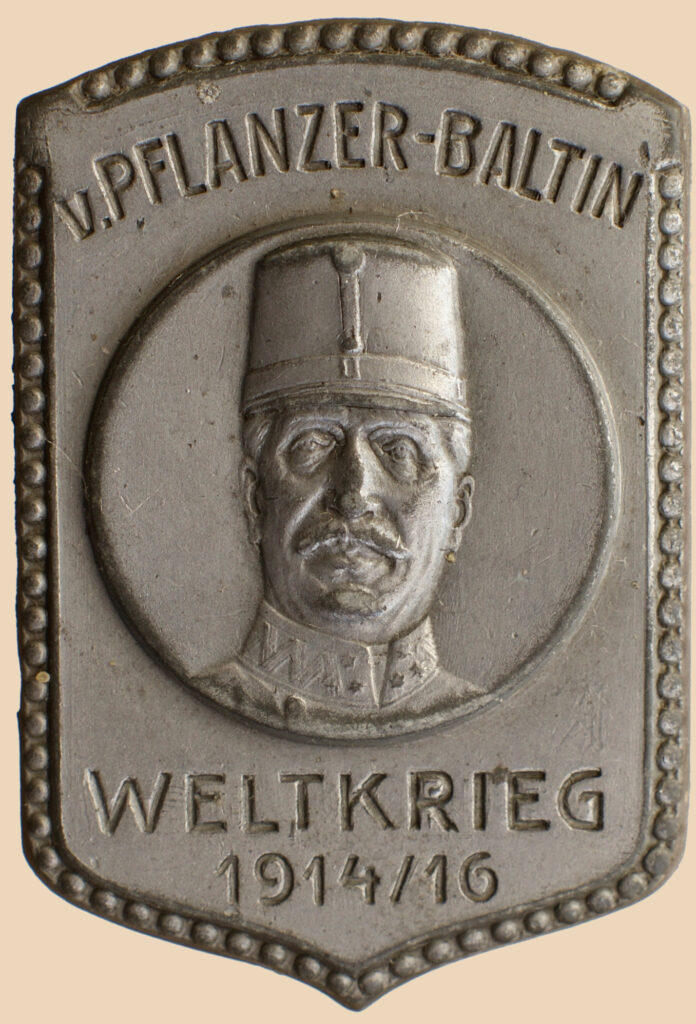
At the outbreak of the Great War, he was appointed commander of a reinforced corps (Armeekorps Pflanzer-Baltin). After the success of the Monarchy in the summer of 1914, a Russian counterattack unfolded in Galicia in the autumn. Pflanzer-Baltin’s corps was also pushed back and was finally able to cling to the Bukovina border in the Carpathians, near Dorna-Vatra. His corps was developed into an army-level unit during the winter. This force went into counterattack in February 1915 and recaptured most of Bukovina, along with the town of Czernowitz, and then Kolomea and Stanislau in Galicia. This attack was the only successful operation of the Monarchy’s winter campaign that prevented the Russians from invading Transylvania. For his successful command, Pflanzer-Baltin received the Grand Cross of the Leopold Order and was appointed secret adviser of the monarch.
Due to the intensified resistance in Bukovina, the Russian military command withdrew troops from the Cracow region of Western Galicia. The weakened Russian front line was broken by a coordinated German-Austrian-Hungarian attack in May 1915 (Gorlice breakthrough). At this time the general’s reinforced corps was reclassified as the 7th Army. The 7th Army was also involved in the pursue of the retreating Russian troops. In February 1916, he received the First Class Military Cross of Merit.
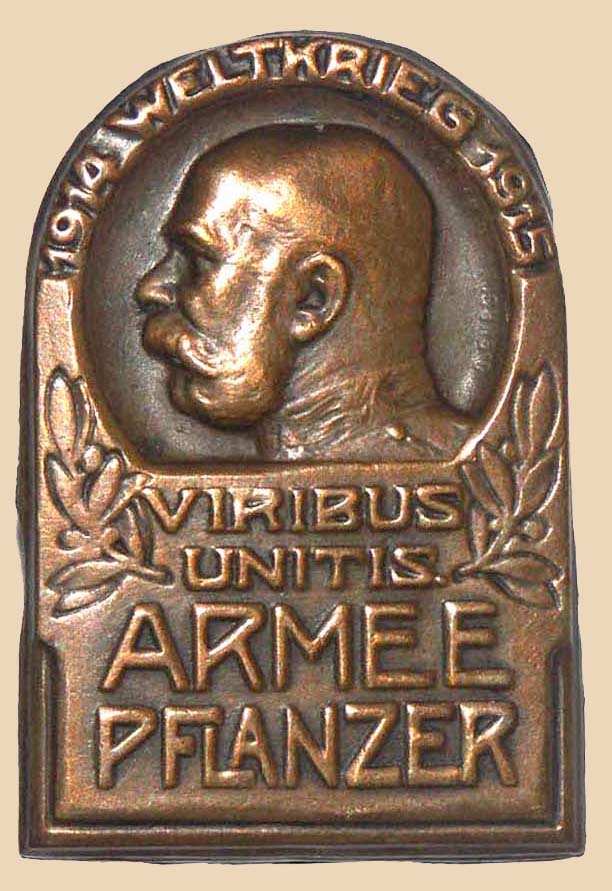
In the summer of 1916, the Brusilov offensive broke through the defensive lines of the 7th Army in northern Bukovina near Okna. The defeated army was pushed back to the Carpathians again, Bukovina had to be given up. German troops were used to stabilize the situation. The Germans became embroiled in a serious dispute with Pflanzer-Baltin, who was therefore called to resign by Archduke Friedrich commandant in chief of the Monarchy. He retired on November 19, 1916. He received the Great Gold Military Medal of Merit from the ruler as compensation.
In March 1917, Emperor Charles reactivated the popular general. He was appointed superintendent of infantry troops. In the summer of 1918, he became the military governor of Albania and the commander of all military units fighting on the southern front. Subsequently, the XIX. Corps successfully arrested Italian and French troops attacking from Greece and then launched a counterattack against them. In August 1918, he occupied significant areas from the Entente’s army. This was the last successful operation of the Monarchy. For these successes, he received the Grand Cross of the Order of St. Stephen, and on October 2, the Commander’s Cross of the Military Order of Maria Theresa. By this time, the advance of the attacking French-Italian units could no longer be prevented, only slowed down. Not so any more after the capitulation of Bulgaria. Pflanzer-Baltin’s corps was bypassed by the attackers. With his troops, he persevered through the Albanian mountains until November 13, cut off from other units. He then managed to retreat in an orderly manner near the Cattaro naval base, the territory of the former Monarchy, where his troops were disbanded.
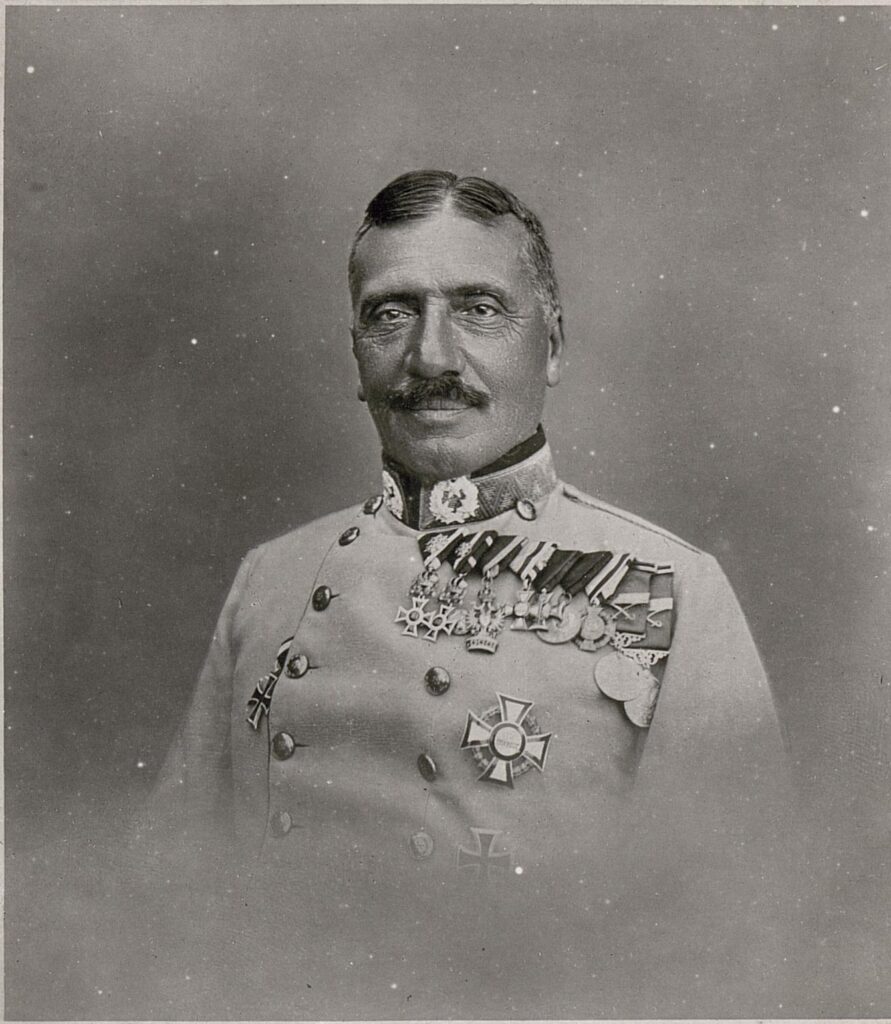
He was retired on December 1, 1918. He lived in Vienna until his death in 1925. He was buried in Hietzing Cemetery with military reverence.

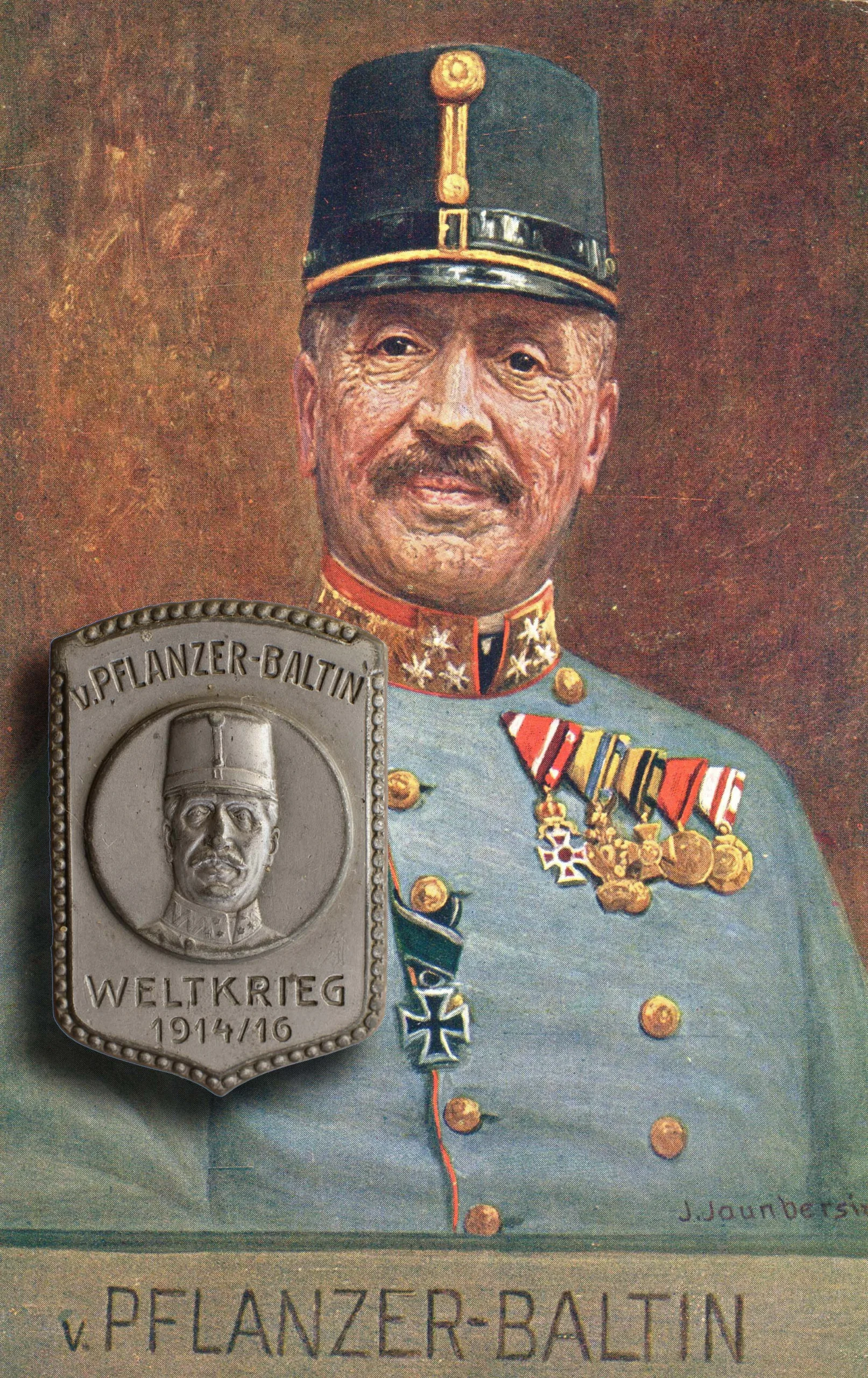
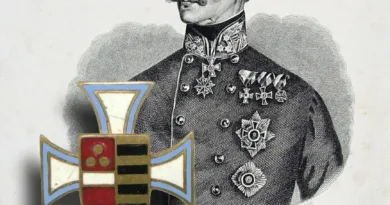
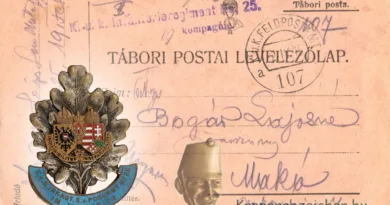

[…] the 3rd Austro-Hungarian army stationed in the Carpathians, and further south by the attack of the Pflanzer-Baltin army in […]